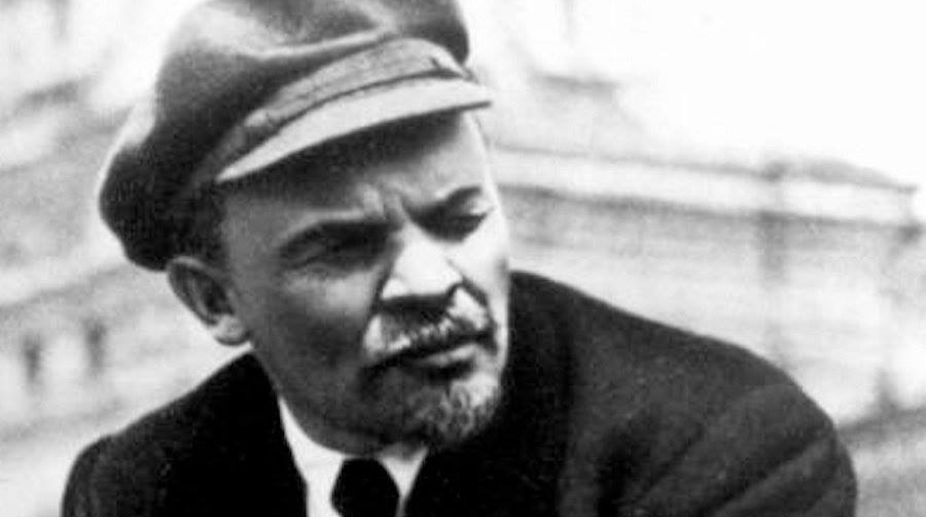One of the driving forces behind the Bolshevik Revolution of 1917 was the idea that it would set an example. The primary target, in that respect, was the West — a Europe in the throes of a convoluted conflict that had consumed more lives than any previous war. However, it found greater resonance in the East.
Vladimir Lenin and Leon Trotsky were convinced that their vision for Russia could be fulfilled only if significant other countries underwent a similar upheaval. A world revolution was the ultimate aim but, in the short term, their eyes were on Europe’s developed powers. There was indeed an uprising in Germany, and, as Lenin had predicted, it wasn’t able to hold on to the territories it had acquired under the Brest-Litovsk peace agreement with Russia. But while Germany lost its crowned head, an attempt at more radical change was brutally crushed, costing the lives, among others, of Rosa Luxemburg and Karl Liebnecht.
Advertisement
Attempted uprisings foundered elsewhere. Subsequently, the course of events in the Soviet Union often deterred European workers from signing up to a copycat adventure, although a sense of solidarity invariably lingered. The colonised peoples of the East, on the other hand, tended to put great store by the liberatory potential of the Bolshevik example, not least because of Lenin’s insistence on self-determination — enshrined in the first Soviet constitution, although under Josef Stalin it became one more technicality that meant little in practice. Among those keeping a keen eye on the Soviet experiment was Allama Muhammad Iqbal. I am reminded in this context of the Pakistani journalist with the pen name Meem Sheen, a devotee of Iqbal, who insisted that communism plus God essentially summed up the subcontinental poet’s philosophy.
I’m not sure it was all that simple, and my limited knowledge of Iqbal’s complex mindset deters me from attempting to elaborate. But I was introduced decades ago by my father to a trilogy of poems in Iqbal’s second collection of verse, Baal-i-Jabril, that potentially supports Meem Sheen’s thesis. The first of the poems is titled ‘Lenin Khuda ke Huzoor Mein’ (‘Lenin in God’s Presence’), in which the leader of the Russian revolution fetches up in a celestial court and declares, essentially: I acknowledge Your Omnipotence, God, but how on earth could I have known whether or not You existed.
The declaration is followed by a litany of humanity’s woes. The second poem is a highly rhythmic recitation by angels of what they have witnessed on earth, corroborating Lenin’s complaints. Then comes the widely known ‘Farman-i-Khuda’ (‘God’s Command’), which begins: “Uttho meri dunya ke gharibon ko jaga do” (‘Rise and from their slumber wake the poor ones of my world’, as translated by Scottish academic Victor Kiernan, at one point a teacher at Lahore’s Aitchison College). The verses that follow are equally powerful, and the opening line echoes, perhaps deliberately, the first lines of The Internationale: “Arise ye workers from your slumber. Arise ye prisoners of want…” The rest of the poem is all about demolishing the status quo, and arguably the most powerful verse decrees: “Jis khaet se dehqaan ko muyassir nahein rozi/ Uss khaet ke har khosha-i-gandam ko jalla do” (Find the field whose harvest is no peasant’s daily bread/ Garner in the furnace everripening ear of wheat!’). It concludes with the incantation, “Adaab-i-junoon Shair-i-Mashriq ko sikha do!” (‘Go! My poet of the East to madness dedicate.’)
I’m not sure ‘madness’ was the appropriate word; ‘junoon’ could be translated as obsession. And Iqbal was by no means alone in being fascinated by the events in Russia, even if his theism was lost upon other devotees of the Bol-shevik experiment. Today marks the 140th anniversary of Iqbal’s birth in Sialkot, and a couple of days ago was the centenary of the Bolshevik takeover. Exactly how the poet reacted to tidings from afar on his 40th birthday is open to conjecture, but in subsequent years and decades many other poets across the colonised world found the Russian experiment awe inspiring.
It is not hard to see why the idea of the world being turned upside down exercised a particular appeal across what was later designated as the Third World.
Many of the insurrections and revolutions that followed, under conditions that inevitably varied from nation to nation, owed at least some of their motivation to the earth-shaking events of November 1917.
It is equally important to acknowledge, though, that the Soviet model was at the receiving end of notable revolts towards the end of the 20th century. Would it have been very different had so many Bolshevik ideals — including a new form of democracy — not perished, more or less, within a decade or so of the formidable upheaval? Whatever the case, the recent excesses of globalised capitalism serve as an enduring reminder that Lenin’s ghost hasn’t lost its relevance.
(Dawn/ANN)











